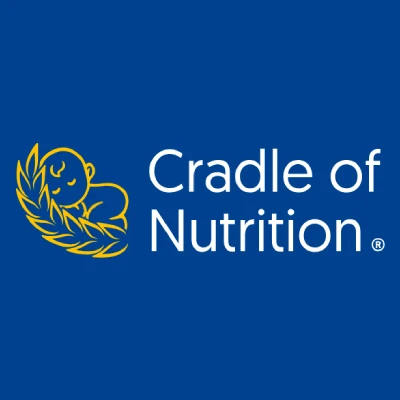
Preconception Health: How Both Partners Can Improve Fertility and Wellness

Cradle of Nutrition
- 4 minutes read
Embarking on the journey to parenthood is an exciting, yet often overwhelming, experience. While the process of pregnancy itself is filled with wonder, the steps you take before conception are just as crucial. Preparing for conception doesn’t have to be complicated—the basic principles are simple: focus on what you can control and address factors that could impact fertility and the health of your future child. By nurturing your physical, emotional, and environmental well-being, you can lay the foundation for a healthier pregnancy.
This guide is designed to help both partners prepare for conception with practical, actionable steps, including dietary recommendations, lifestyle modifications, and substances to avoid.
1. Preconception Health Check-Up: Essential for Both Partners
Before trying to conceive, schedule a preconception health check-up with your healthcare provider. This visit can help identify underlying health conditions that may impact fertility or pregnancy. Whether it’s managing diabetes, thyroid disorders, or addressing weight and stress, this check-up sets the foundation for a successful pregnancy.
- Tip: If you’re thinking about trying for a baby soon, schedule your check-up 3-6 months ahead. This gives you time to address any potential health issues or concerns.
Healthcare providers will also assess your vaccination status, recommend any necessary immunizations, and screen for sexually transmitted infections (STIs), which may affect fertility or complicate pregnancy.
2. Nutritional Foundations for Fertility: What to Eat for Conception
What you eat can make a big difference in your ability to conceive. A balanced diet, rich in fertility-boosting nutrients, will support both partners’ reproductive health.
- Folic Acid: Essential for the baby’s early neural tube development. Incorporate folate-rich foods like dark leafy greens, fortified cereals, and legumes into your diet.
- Iron: Iron prevents anemia, which can hinder fertility. Found in lean meats, spinach, and quinoa, iron helps ensure optimal fertility for both men and women.
- Omega-3 Fatty Acids: These essential fats support hormone regulation in women and improve sperm quality in men. Get your omega-3s from salmon, chia seeds, and walnuts.
- Antioxidants: Vitamins like C and E protect sperm and egg quality. Berries, nuts, and colorful vegetables like bell peppers and carrots are rich in antioxidants.
- Vitamin D: Adequate levels support reproductive health. Sources include fatty fish, fortified dairy products, and egg yolks.
- Zinc: Zinc helps regulate hormones and improve fertility in men. Find zinc in oysters, pumpkin seeds, and chickpeas.
- Pro Tip: If you’re unsure where to start, try incorporating one fertility-boosting food each week into your meals. Over time, these small changes can make a big difference.
3. Foods and Substances to Avoid for Optimal Fertility
Some foods and substances can hinder fertility or pose risks during pregnancy. Here’s a list of things to avoid when preparing to conceive:
- Trans Fats: Found in processed and fried foods, they disrupt hormone balance. Avoid packaged snacks and fast food.
- Caffeine: More than 200-300 mg per day can reduce fertility. Limit coffee, tea, and caffeinated drinks.
- Unpasteurized Dairy: Unpasteurized products can carry harmful bacteria that affect pregnancy. Stick to pasteurized dairy products.
- Alcohol: Alcohol consumption can negatively affect fertility for both partners. Abstain during the preconception period.
- High-Mercury Fish: Fish like swordfish and shark contain mercury, which harms fetal development. Opt for low-mercury fish like salmon.
- Smoking and Recreational Drugs: Both smoking and recreational drug use significantly impair fertility and increase pregnancy risks. Quit smoking and avoid drugs when trying to conceive.
- Reminder: The months before conception are a perfect opportunity to quit smoking and reduce alcohol. It’s never too early to start making these positive changes!
4. Lifestyle Modifications to Boost Fertility
In addition to a nutritious diet, making key lifestyle adjustments can enhance fertility for both partners:
- Exercise: Regular physical activity helps maintain a healthy weight and reduces stress. Moderate exercise, like walking, yoga, or swimming, is ideal. Excessive exercise, however, may disrupt fertility, so aim for balance.
- Weight Management: Both being overweight or underweight can affect fertility. Achieving a healthy weight improves fertility for both partners, helping regulate hormone levels and support sperm production.
- Stress Reduction: Chronic stress negatively impacts reproductive health. Incorporate stress-relieving practices such as meditation, mindfulness, or deep breathing exercises.
- Minimize Toxin Exposure: Exposure to environmental toxins (like pesticides and plastics containing BPA) can disrupt hormonal balance. Choose organic produce and natural cleaning products to reduce toxin exposure.
- Simple Step: Start by incorporating a 10-minute daily meditation practice or taking a short walk each day. Over time, this will build your emotional and physical resilience.
5. A Key Insight from Dr. Andrew Czeizel: The Impact of Preconception Interventions
Dr. Andrew Czeizel, a leading expert in reproductive health, emphasizes that preconception interventions—such as proper nutrition, lifestyle changes, and eliminating harmful substances—can significantly improve both fertility and pregnancy outcomes. According to Dr. Czeizel, “By optimizing the health of both partners before conception, we reduce the risk of birth defects and complications during pregnancy.”
Dr. Czeizel’s research underscores the importance of addressing factors like nutrition and lifestyle early, as they can enhance fertility and contribute to a healthier pregnancy for both parents and the baby.
Simple Steps for a Healthy Pregnancy
The journey to conception begins with simple steps you can take to optimize your health. By focusing on proper nutrition, healthy lifestyle choices, and eliminating harmful substances like smoking and alcohol, you’re setting yourself up for a successful pregnancy. Both partners play an essential role, so work together to ensure you’re both in optimal health.
- Your Next Step: Schedule your preconception check-up with your healthcare provider today. This is the first step toward a healthy pregnancy. By making small adjustments now, you’re investing in your fertility and your future child’s health.
By Erika Barabás
References:
- Czeizel, A. E. (2014). Preconception care and the prevention of birth defects. Journal of Pregnancy and Child Health, 1(1), 2-5.
- American College of Obstetricians and Gynecologists (ACOG). (2021). Preconception Care: Nutrition and Exercise. Retrieved from www.acog.org






